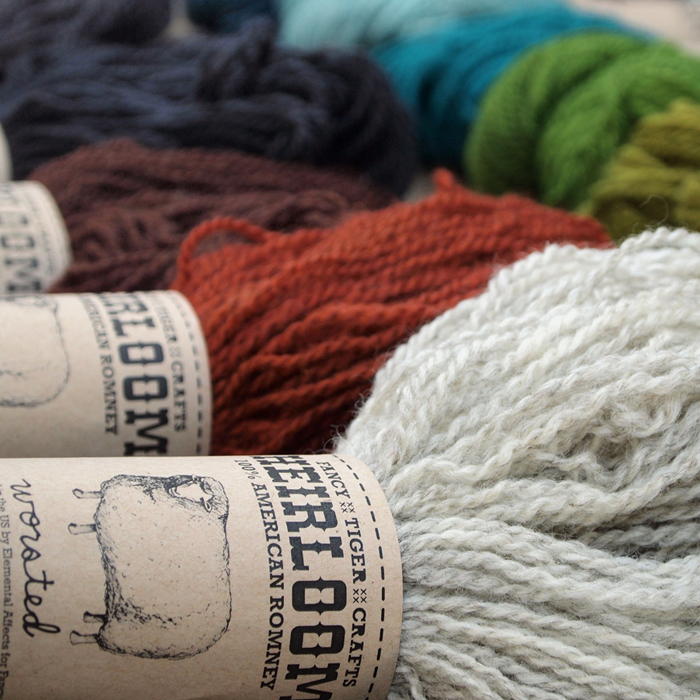
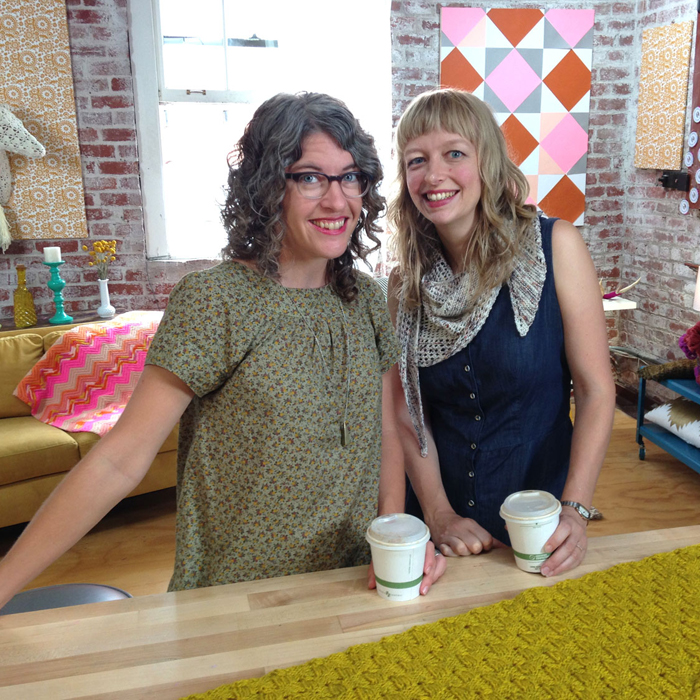
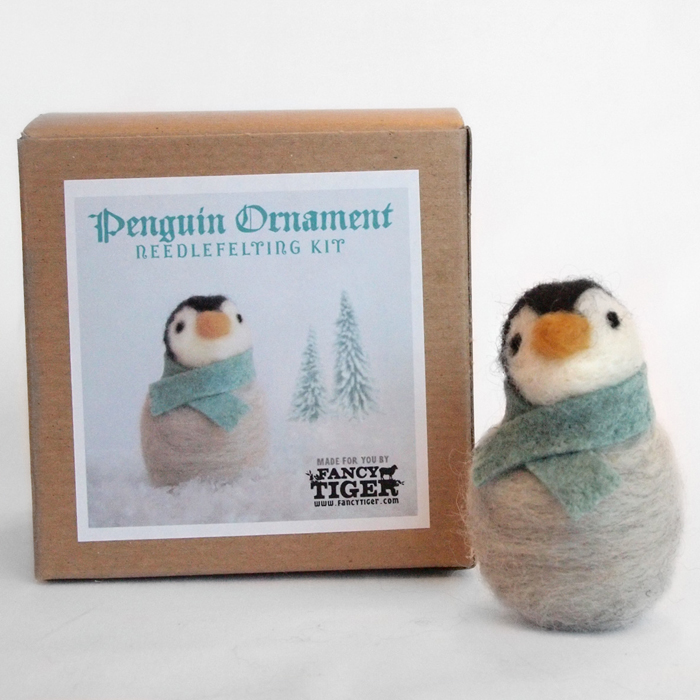
Fancy Tiger Crafts started as a 900-square-foot retail shop in 2006. Over the years we have expanded both our retail space and store, but also the areas of business that we are involved in. Diversification seems to come naturally to us: Since the beginning, we have specialized in a variety of crafts including knitting, crocheting, sewing, quilting, embroidering, felting and spinning.
Over the past nine years, we have branched out — we’ve hosted holiday markets, taught hundreds of classes, developed a line of needle-felting kits, published knitting and sewing patterns, developed our own yarn line, started a wholesale business of kits and patterns, opened an online store and taught online classes through Creativebug. Diversifying in these ways has helped our business grow by promoting our brand to new and wider audiences and bringing in revenue through multiple channels. It also helps keep us personally interested and motivated.
Teaching classes is a natural way for craft supply shops to diversify. In fact, at Fancy Tiger Crafts, we offered classes in the very early days of our business. By teaching the skills required to use our products, we are able to draw in new customers and, as those customers’ skills develop, they return to purchase more and different products.
In addition to classes, free community nights have been a crucial part of our business and have helped us build a community of crafty folks in Denver, Colorado. During our first few years in business, we taught our classes through other local venues such as libraries and art museums, which allowed us to spread the word about our newly opened shop to locals interested in crafting.
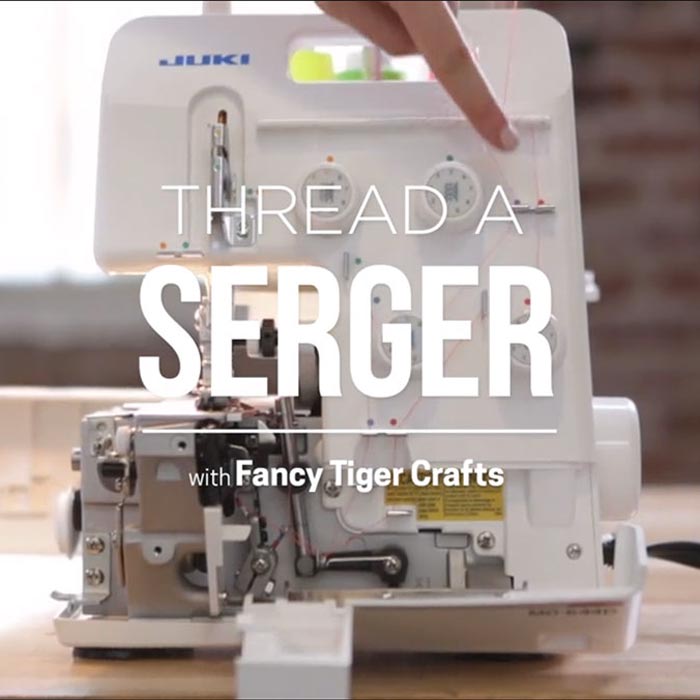
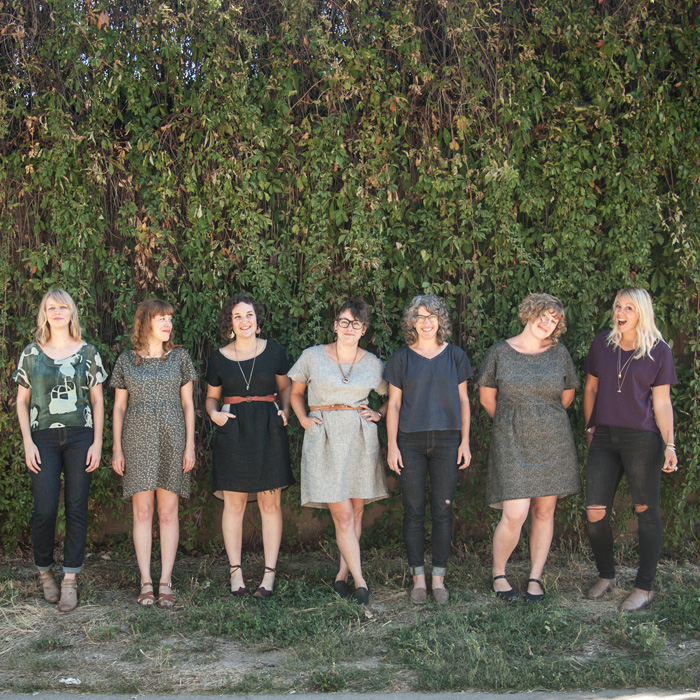
The staff at Fancy Tiger Crafts
Photos provided by Fancy Tiger Crafts
In December of 2006, we hosted Denver’s first “alternative craft fair.” At the time, Denver did not yet have a craft fair in the vein of a Renegade that catered to a younger audience. Our aim was to help grow Denver’s DIY scene and celebrate some of the amazing local makers.
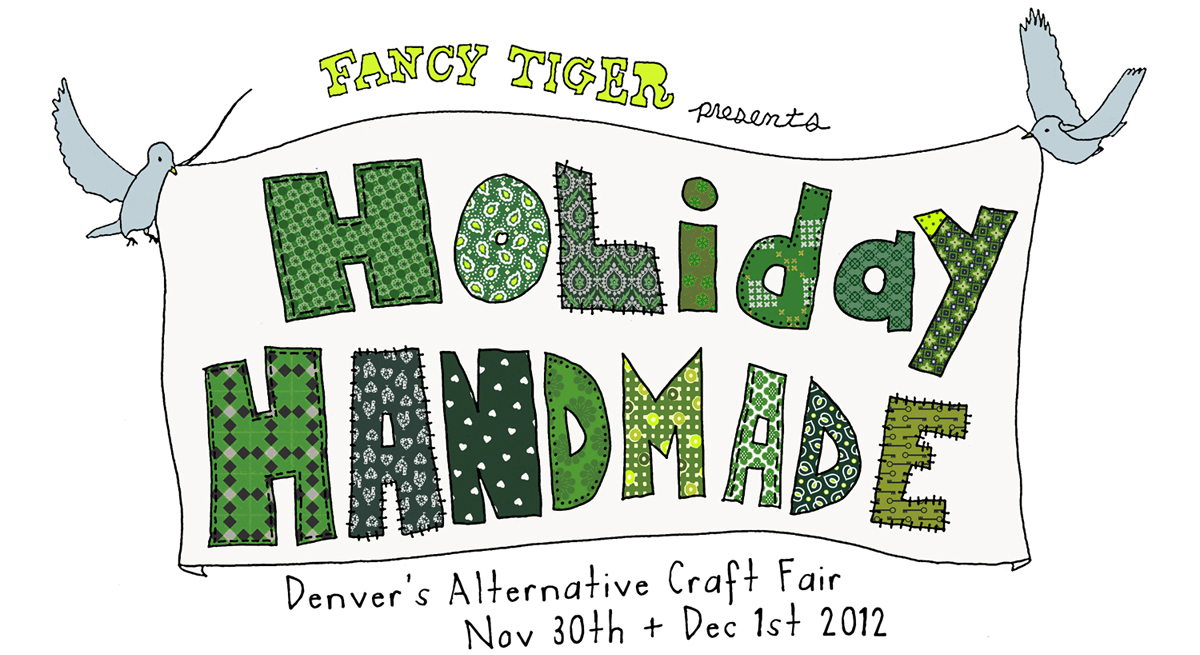
The first holiday market was very successful and well promoted by local press. Organizing the fair solidified our position as Denver’s premier source for all things crafty and helped us network with Denver’s maker scene. We continued to host this event for five years, at which point we realized we were competing with similar markets that had popped up in the area. We decided to stop hosting the craft fair and, instead, focus our energy on the other projects we had brewing in house.
Our line of needle-felting kits was another project that started early in our business. Needle felting is brilliant because it’s a simple craft that anyone — from a child to an adult — can do successfully. We developed kits as a way to help teach people the craft. Our kits became the first item we sold online through our Etsy shop. This was another great way to expand our brand. Our felting kits even gained recognition in Sunset magazine and on HGTV.
Diversification often requires you to develop an entirely new skill set.
For instance, when we decided to make the leap into wholesale, it took us a few years to get the process going. In our first few years in business, we had countless requests for wholesale orders, but we held off until 2012, when we had a more streamlined and efficient way of pricing and making the kits available wholesale. Instead of rushing into the wholesale market before we were totally prepared, we kept a list of stores that were interested. When we were ready to launch our wholesale line of kits in 2012, we emailed those stores and were able to start with little promotion.
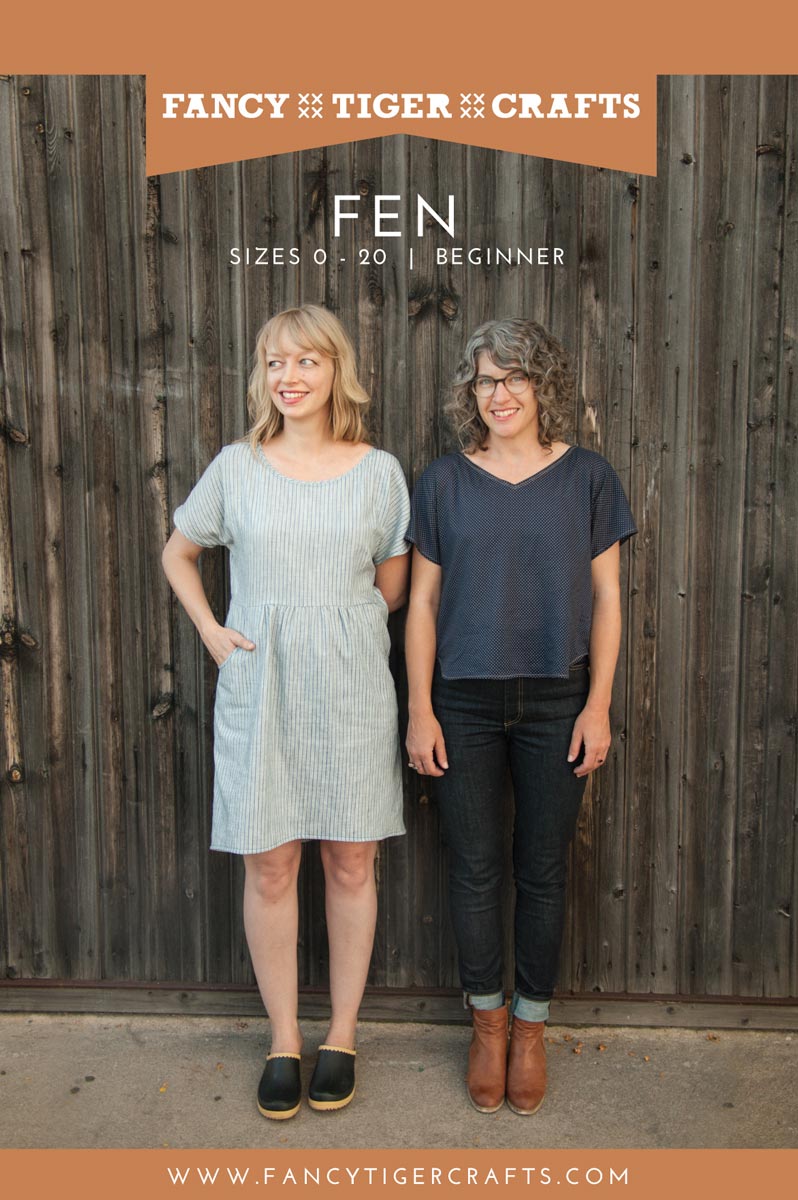
Pattern writing was our next venture. Some of the products that we love the most are a hard sell to our customers — a pricey skein of handspun art yarn, or local milled wool that might seem scratchy, for instance — so our early patterns were a way to promote these items. Our thought was that, if we could give customers a free, “one-skein pattern with purchase,” it would greatly increase our sales of some of those harder to sell, but well-loved-by-us products. When we first brought in Pendleton jacquard wools, we were concerned with being able to sell the $80-per-yard fabric. We knew we needed an easy pattern that only used a small cut of fabric to help sell it. Our simple and free Pendleton Tote pattern has done just this and has been our most successful class to date.
Free patterns also increase blog traffic and we often publish the patterns on and through our blog. When we started to develop more complicated patterns, selling them as a product made sense. We developed the Sailor Top pattern back in 2010, and we taught it as a class. Our customers requested it as a pattern, but it took us another four years to develop this into our first print sewing pattern.
Before we could sell the pattern, we had to learn how to print tissue, digitize our tagboard pattern pieces, grade to a full range of sizes and get it all packaged. There was a learning curve and it took a lot of time and energy to put all the pieces together, especially while running a busy retail store. Despite the time and energy, we knew this was an important step in our business in growing a wider audience. Wholesaling this print pattern to other shops seemed mandatory due to the high minimum costs of printing large-scale prints on tissue.
Promoting the pattern to other retail stores was not a difficult form of diversification for us. As a longtime retailer, we had the unique perspective of knowing what would help our pattern be the most successful and attractive to other retail stores.
One way to diversify is through collaboration. Our in-house line of yarn, Fancy Tiger Crafts Heirloom Romney, is a collaborative project with Jeane deCoster of Elemental Affects. We had long admired Jeane’s lines of US-sourced and milled single breed yarns and got to know her over the years. When she expressed concerns about the marketability of a new yarn she was milling, we came up with an idea to work together to promote this yarn — Jeane would handle all aspects related to sourcing and production, which are her areas of expertise, and we would choose the color palette, design the packaging and handle all marketing and pattern support for the yarn. Jeane gets the benefit our aesthetic, marketing prowess and design, and we get a private label yarn line that we love.
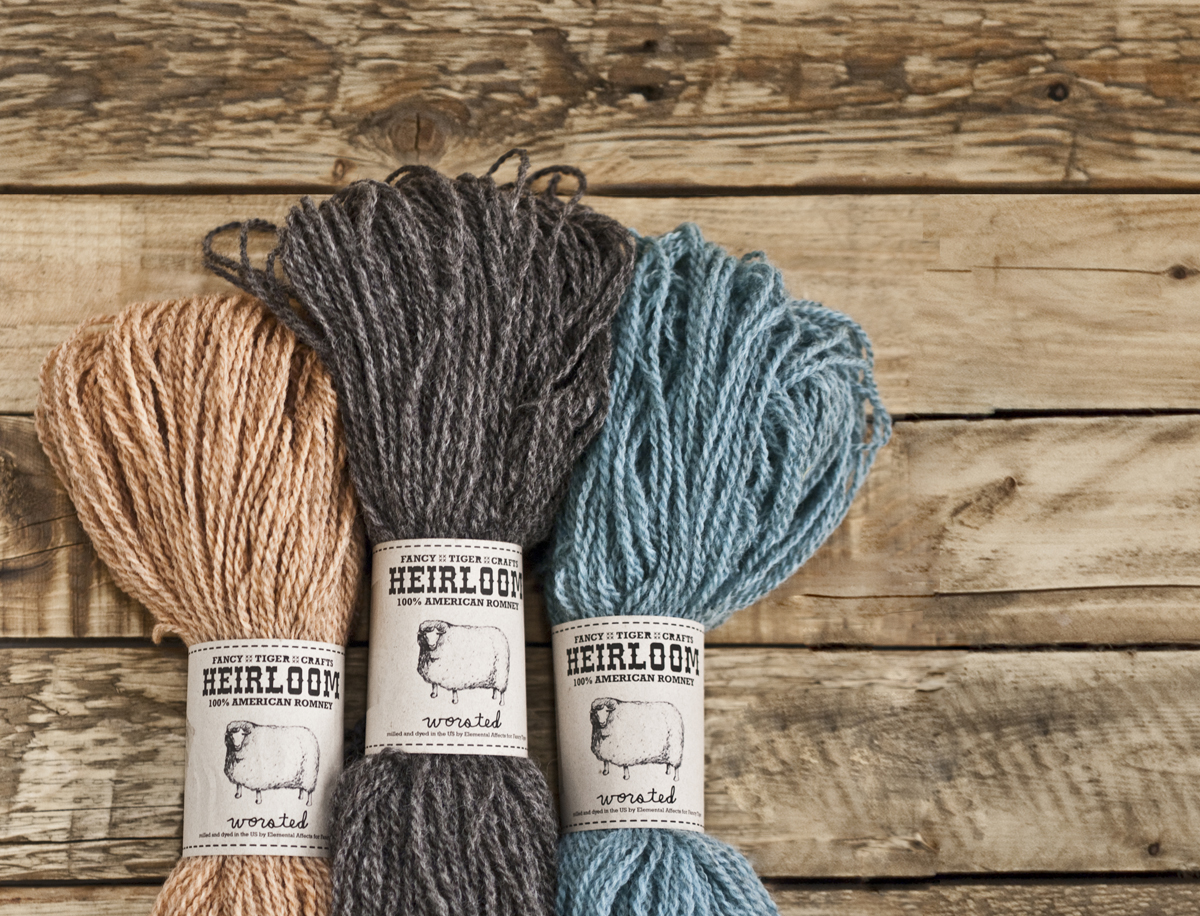
After the first successful year of this collaboration with Jeane, we decided to offer Heirloom to other stores. Jeane handles all the wholesale orders and we get a commission on all skeins sold for the work we do to promote the yarn line. This is a great way to work together and is a win-win situation for both parties. Having our own yarn line was always a dream of ours, but we didn’t know how to make it happen. Working with Jeane has taught us so much. Currently, she is helping us move beyond the marketing to develop and produce our own line of Colorado-grown and milled yarn and we plan to release this new yarn next year.
The most recent new venture for us has been filming online classes through Creativebug. When Creativebug reached out about working with us, the timing couldn’t have been better. The release of our classes coincided with the launch of our new online store. We had spent years marketing and growing our brick and mortar store in Denver and were now focused on gaining brand recognition on a national level. Working with Creativebug was a great opportunity, and we are now able to offer Fancy Tiger Crafts classes to people who aren’t local.
Each of these ventures: Classes, events, patterns, yarn, wholesale and online store and online classes serve multiple purposes for our business. On the most basic level, they help maintain a sustainable business through a variety of revenue sources.
Everything we do also serves to promote our brand, — whether it’s to a local audience or national or international audience — and we are always looking for ways to introduce people to Fancy Tiger and create new customers.
Each of these parts of our business feels authentic to us. We are passionate about everything we do and truly love to share our skills, patterns and ideas with the greater community. On a personal level, diversification is an important way to maintain our interest, motivation and happiness. I’m not sure if the daily grind of working retail would have kept us interested for almost 10 years, but the way Fancy Tiger Crafts has evolved means there is always something new to do and learn. We have found new things we love to do, and are able to make these things a part of our daily work life. Part of having a sustainable business is maintaining your own happiness and we believe diversification can help inspire you through the long haul. We always have dreams and goals for our business so this isn’t the end. There are all sorts of new projects on our horizon.
Interested in brick-and-mortar retail? Craft Industry Alliance members get access to our exclusive webinar with shop owners talking about what it’s really like to run a store in today’s environment.

Thanks for this article! I love the picture of what it’s taken to do all you’ve accomplished.